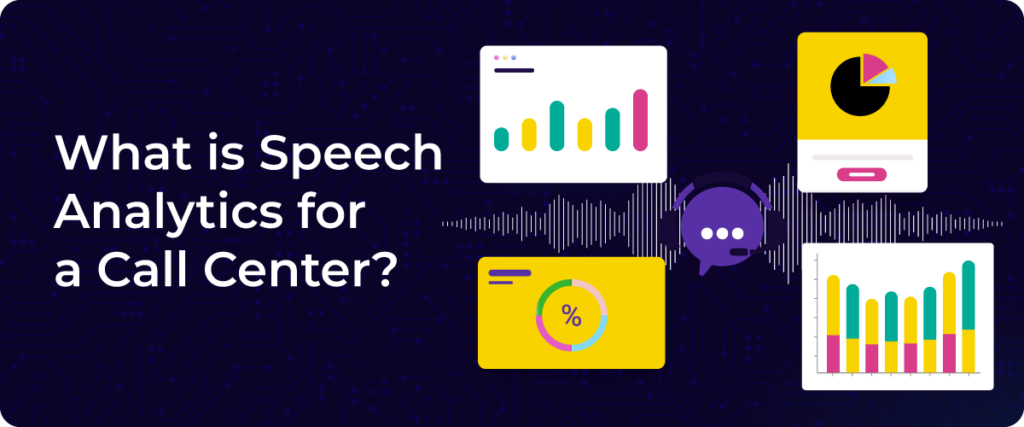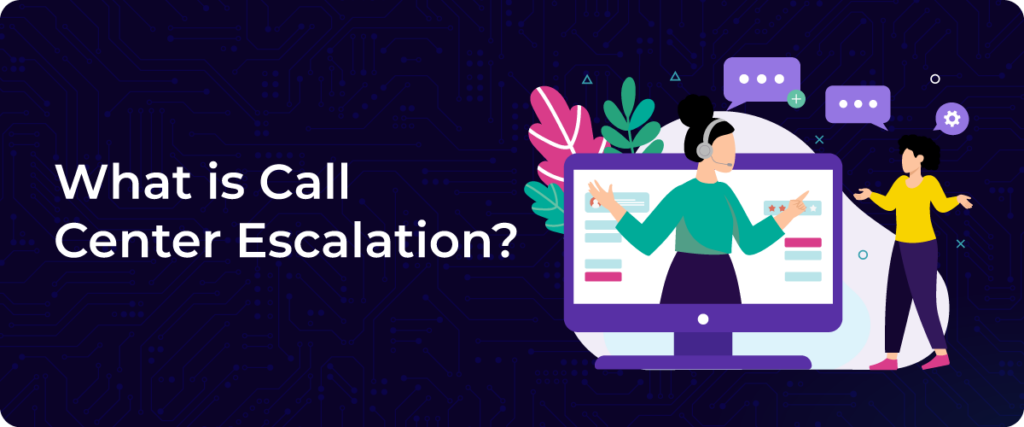Enterprise contact center solutions help businesses handle customer interactions through a variety of channels, including voice, chat, email, and social media, with the help of enterprise contact center software.
These solutions, include real-time analytics, AI automation, CRM integration, and intelligent call routing, improve customer experience while increasing operational efficiency.
An Enterprise cloud contact center software offers seamless multichannel support, deals with high call volumes, provides individualized customer service, scales operations flexibly and economically to meet changing or growing demand
Table of Contents
- What are Enterprise Contact Center Solutions?
- Features of Enterprise Contact Center Solutions
- What are the Capabilities of a Contact Center?
- What are the Benefits of Using Enterprise Cloud Contact Center Software?
- How to choose the Right Enterprise Contact Center Solutions
- Comparative Analysis: SMB vs. Enterprise Contact Center Software
- Enterprise Contact Center Solution by ConvozenAI
What is an Enterprise Contact Center Solution?
Enterprise contact center solutions is a software platform to centralize and manage customer interactions across different communication channels including, but not limited to, voice calls, email, chat, social media and SMS for large organisations.
These tools are different from traditional call centers which primarily engage in voice communication, since they bring all customer engagement channels (like voice, social media, SMS, etc.) into a single hub. These softwares offer a consistent and personalized experience regardless of the underlying channel.
Features of an Enterprise Contact Center Solution
Key features of Enterprise contact center software include:
Automated Call Distribution (ACD)
Automatically routes incoming calls to the best-suited agent with a related skill set, taking account of stated availability and call volume so that customers are always connected with an appropriate representative quickly.
Interactive Voice Response (IVR)
Allows callers to interact with automated menus utilizing either voice prompts or keypad inputs, distributing calls to the correct department and/or giving the caller self-service options for routine inquiries.
Call Recording and Monitoring:
Enables supervisors to either record and/or listen in on live calls, or access the recordings at a later time for training, quality control, or compliance reasons.
CRM Integration:
Enterprise contact center solutions integrate to Customer Relationship Management systems so that agents can access various customer data, purchase history, and any previous details on interactions to offer a more efficient customer experience.
Omnichannel Support:
Supports multiple communication types, whether it is voice, email, live chat, SMS, or social media, allowing for businesses to engage with customers across all contact points on a single unified platform.
Read More on: Best Omnichannel Contact Center Softwares in 2025
AI and machine learning:
An Enterprise contact center software mostly has features such as conversational analytics, chatbots and automated suggestions to improve customer experience and an agent’s operational efficiency.
Compliance and security
The software should comply with the industry regulations (e.g. GDPR, or PCI DSS) with call recording, encryption and other access-control features.
Disaster recovery
It should ensure business continuity with options like automated failover and backup features when disruptions can arise.
Reports & Analytics
Enterprise contact center solutions offer real-time reporting and analytics. They help in resource optimization, trend identification and enhancing of service quality with their AI-powered insights and configurable dashboards.
What are the Capabilities of a Contact Center?
An effective enterprise contact center solution can offer several capabilities that empower businesses to provide top-notch customer support and drive sales performance. These include:
- Multichannel Communication: Ability to communicate with customers via voice, chat, social media, and email.
- Automation: AI-powered tools like chatbots and automated routing.
- Customer Analytics: Insights into customer behavior and preferences.
- Quality Management: Real-time monitoring, coaching, and performance management
- Advanced Reporting: Customized reports to track key performance indicators (KPIs).
Quality Monitoring in Call Centers: Best Practices & Implementation
What are the Benefits of Using Enterprise Contact Center Software?
Let’s explore the key benefits that make enterprise call center software essential for large organizations:
Scalability to Handle High Call Volumes
Enterprise contact center software is built to scale with business growth.
Enterprises can maintain high levels of efficiency and customer satisfaction, even during times of growth or seasonal demand fluctuations.
Omnichannel Support for Seamless Communication
Omnichannel Contact center software integrates these channels into one unified platform, providing an omnichannel experience that allows agents to engage with customers on their preferred communication channel.
Enterprises can deliver a seamless and consistent customer experience across all channels with AI powered enterprise contact center solutions
Workforce Optimization for Improved Agent Performance
Improved call center workforce management leads to optimal staffing, reduced agent burnout, and increased first-call resolution rates.
Enterprise contact center software also provides workforce optimization tools such as real-time dashboards, quality monitoring, and agent performance tracking help ensure that agents are performing at their best.
Learn: Capabilities of ConvoZen.AI’s Omnichannel Contact Center Software
How to choose the Right Enterprise Contact Center Solutions
When selecting the enterprise contact center solutions, there are several factors to consider:
- Scalability: Ensure that the platform can grow with your business and handle increasing call volumes.
- Integration: The software must seamlessly integrate with your existing CRM, email, and other systems.
- Customization: Choose a solution that can be tailored to your unique business needs and customer service requirements.
- User Experience: The platform should be easy to use for agents and managers.
- Cost: Evaluate the total cost of ownership, including setup, maintenance, and support fees.
Comparative Analysis: SMB vs. Enterprise Contact Center Software
| Features | SMB Contact Center Software | Enterprise Contact Center Software |
| Scalability | Limited scalability, designed for smaller teams and fewer agents. | Highly scalable, can support large teams and handle high call volumes. |
| Cost | Generally more affordable with basic features. | Higher cost due to advanced features and customization options. |
| Ease of Use | Simple, user-friendly interface, suitable for smaller operations. | May require more training and technical expertise to use effectively. |
| Customization | Basic customization options, are often limited to features and workflows. | High level of customization to meet specific enterprise needs. |
| Omnichannel Support | Basic omnichannel capabilities (voice, email, and chat). | Advanced omnichannel support, including social media, video, and more. |
| Integration Capabilities | Limited integrations with other software and CRM systems. | Extensive integrations with CRMs, ERPs, and third-party systems. |
| AI & Automation | Limited AI tools (e.g., simple chatbots and basic IVR). | Advanced AI capabilities such as predictive analytics, speech analytics, and automated routing. |
| Reporting & Analytics | Basic reporting and analytics tools, often with limited depth. | Comprehensive reporting and real-time analytics with deep insights. |
| Security & Compliance | Basic security features may lack full regulatory compliance. | Advanced security measures with strong compliance to regulations (e.g., GDPR, PCI-DSS). |
| Workforce Management | Basic workforce management, typically with simple scheduling tools | Advanced workforce optimization tools including real-time monitoring, forecasting, and scheduling. |
| Support & Customer Service | Basic customer support may rely on third-party vendors. | Dedicated enterprise-level support, including 24/7 service and technical assistance. |
| Implementation Time | Faster implementation, typically ready within a few weeks. | Longer implementation time, requiring a more thorough setup and configuration. |
| Cloud vs. On-Premise Options | Primarily cloud-based with limited on-premise options. | Primarily cloud-based but with options for on-premise deployment if needed. |
Enterprise Contact Center Solution by ConvozenAI
ConvoZenAI’s Enterprise Contact Center Solutions addresses these challenges by automating routine tasks, intelligently routing inquiries, and providing agents with real-time data and insights to resolve issues faster. It allows businesses to scale without sacrificing customer experience, providing efficient, personalized service even as call volumes increase.
By integrating ConvoZenAI , enterprises can improve their call center efficiency, streamline operations, improve customer satisfaction, and reduce operational costs empowering both agents and customers for better outcomes.
Request a Demo for ConvozenAI Enterprise Solution
FAQs
An enterprise contact center is a platform that manages customer interactions through a variety of channels. It uses analytics, CRM integration and artificial intelligence (AI) to improve customer service efficiency and provide a personalized experience to a customer
ConvoZen.AI uses AI-driven automation to reduce response times, intelligently route calls, and provide real-time insights, helping businesses scale while maintaining service quality.
Many modern enterprise contact center solutions are cloud-based, offering flexibility, scalability, and remote accessibility for businesses of all sizes.
AI and automation enhance efficiency by automating routine tasks, improving response times, and enabling personalized customer interactions at scale.
When choosing enterprise contact center software, identify key features, ensure its scalability ability , test usability with demos and confirm strong support and training from the provider.


